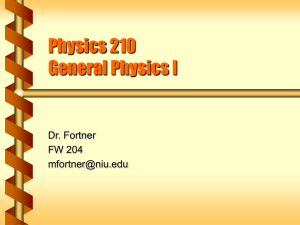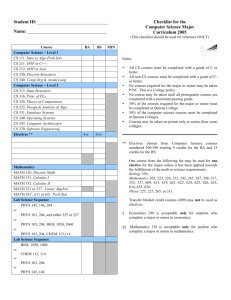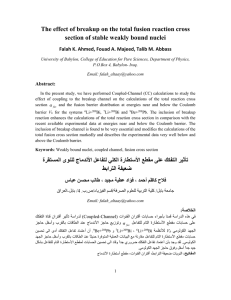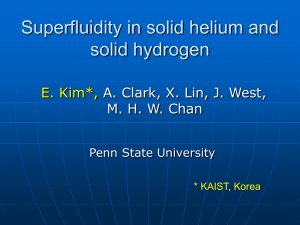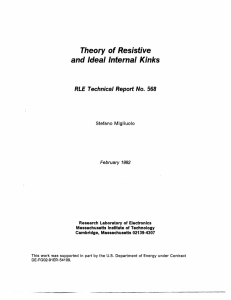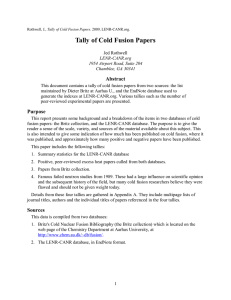Sun's power
advertisement
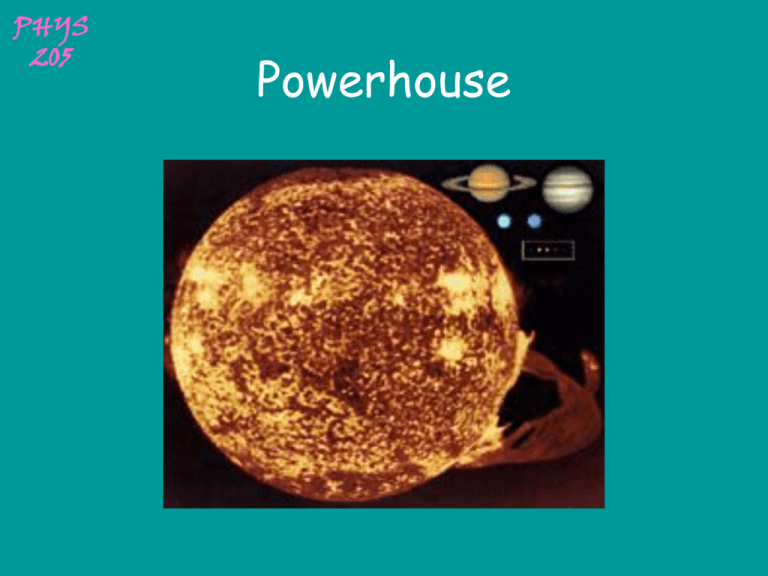
PHYS 205 Powerhouse PHYS 205 Possible sources Chemical Energy: Sun has hydrogen and if it has oxygen, than we can make water. will last 18,000 years. there is not enough oxygen. Gravitational Energy: Gravity compresses the Sun, the gases will be heated will last 30,000,000 years. Falling meteorites will heat the Sun you need Earth’s mass every 100 years will change Earth’s orbit 4 minutes each century. Nuclear Energy: Only option left. So how?? PHYS 205 Nuclear Reactions Nuclear Fission - produces energy by breaking up massive nuclei Nuclear Fusion - produces energy by fusing together light nuclei Stars are made up of light nuclei: The energy source of the stars is nuclear fusion. PHYS 205 Nuclear fusion Fusion requires extremely high temperatures: To fuse hydrogen we need a few million degrees (5-8 million K) To fuse elements with a greater positive charge we need higher speeds (higher temperatures). Helium fuses at 100 million K. Heavier nuclei fuse at even higher temperatures. PHYS 205 Einstein?? E = mc2 This formula means that mass can be converted into energy. 10 gr chalk -> 9.1014 Joules. Take water at 20 oC. You can boil 3.5x108 tons of water with this energy. Cube of water with side 70m. In the Sun, Hydrogen (one proton) is converted into Helium (two protons and two neutrons). PHYS 205 Sun’s fusion PHYS 205 Reactions 1H + 1H 2H + e- + + 1.4 x 1010 years 2H + 1H 3H + 6s 3H + 3H 4He + 21H 106 years 1H : 1.007825u 4 1H : 4.03130u 4He 4.00268u : --------------------0.02862u 1 kg H 0.0071 kg = 7.1 g mass defect 6.4 x 1014 Joules Sun’s luminosity : 4 x 1026 joules/sec 6 x 1011 kg/sec Sun lasts 1010 years PHYS 205 Equilibrium How is this all possible?? 1. 2. 3. Sun is made up of gas Heated gases expand They have a pressure increasing T increases p Sun is stable Gravitation should collapse it, but does not So T in the center should be 15,000,000 K hydrostatic equilibrium Temperature does not change 4. Heat generated = heat lost thermal equilibrium Heat is transferred: conduction, convection, radiation PHYS 205 Radiation During the fusion reactions two kinds of radiation are generated. 1. Photons (gamma rays): It takes about 1,000,000 years to reach the surface. 2. Neutrinos (massless): It takes about 2 seconds to reach the surface.
